Wearable health technologies that provide real-time monitoring of health and fitness indicators have become increasingly popular in recent years. These smart health technologies have been introduced into watches, phones, skin patches, wrist bands and even hearing aids.
Joining this list now are eye contact lenses, as researchers have developed a smart contact lens that can measure glucose levels in the eye to help monitor, treat and even prevent diabetes and associated diabetic retinopathy.
Researchers at the Pohang University of Science and Technology (POSTECH) in South Korea have devised a wireless-powered, multi-functional contact lens that can evaluate glucose levels and deliver drugs via electrical signals.
The smart contact lenses are made of biocompatible polymers and involve the integration of biosensors, drug delivery and data communication systems to provide real-time monitoring of glucose levels in the eye and provide therapeutic intervention.
The lens was developed by Professor Sei Kwang Hahn and graduate students Do Hee Keum and Su-Kyoung Kim along with Professor Jae-Yoon Sim and graduate student Jahyun Koo; the findings have been recently published in Science Advances.
Professor Han, who led the research study, stated in a press release, “despite the full-fledged research and development of wearable devices from global companies, the commercialization of wireless-powered medical devices for diagnosis and treatment of diabetes and retinopathy is insufficient.”
He further commented that, “we expect that this research will greatly contribute to the advancement of related industries by being the first in developing wireless-powered smart contact lenses equipped with drug delivery system for diagnosis and treatment of diabetes, and treatment of retinopathy.”
Related: Flexible Contact Lenses Correct Vision, Monitor Glucose and Facilitate Ocular Drug Delivery
The contact lens consists of a glucose sensor, drug-delivery reservoir, wireless power receiver coil, integrated circuit chip and a radio-frequency communication system.
Glucose levels in tears are measured in real-time by the glucose sensor in the device, which would replace the need for traditional blood glucose monitors that involve obtaining blood samples through invasive finger pricks.
Drugs, such as those used to treat diabetic retinopathy, are encased in the lens and administered via the drug-delivery reservoir. It remains unclear, however, whether insulin can be administered in this way.
The lens can digitally transmit acquired biometric data to external devices such as smartphones using radiofrequency communication.
The study researchers demonstrated that in rabbits, the contact lenses caused low levels of eye irritation, measured glucose levels in tears reliably and provided effective controlled release of genistein, a drug that may help treat diabetic retinopathy.
The researchers and their commercialization collaborator Interojo, backed by the South Korean government and Samsung, are now getting ready for clinical trials for the contact lenses.
The new smart contact lens is among the latest innovations in the growing market of wearable health tech devices. According to Accenture, US consumer use of wearables rose from nine percent in 2014 to 33 percent in 2018.
Real-time health monitoring through wearable devices is attractive to consumers as it provides an easy, convenient and efficient way to not only help treat existing health conditions, but also alert to, and prevent the onset of, any new ones.

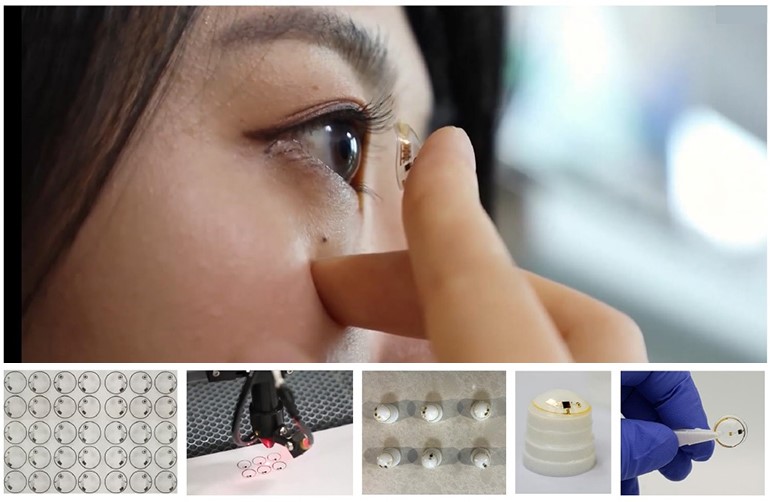

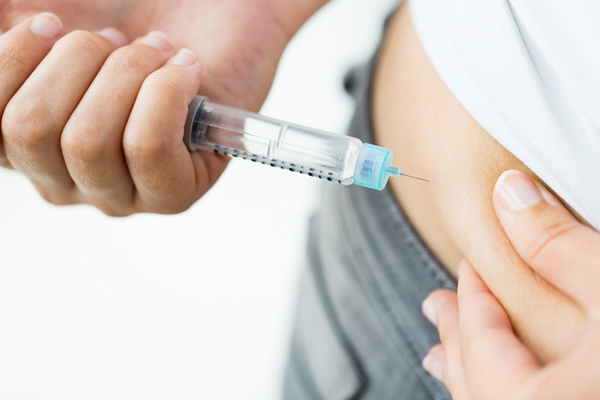
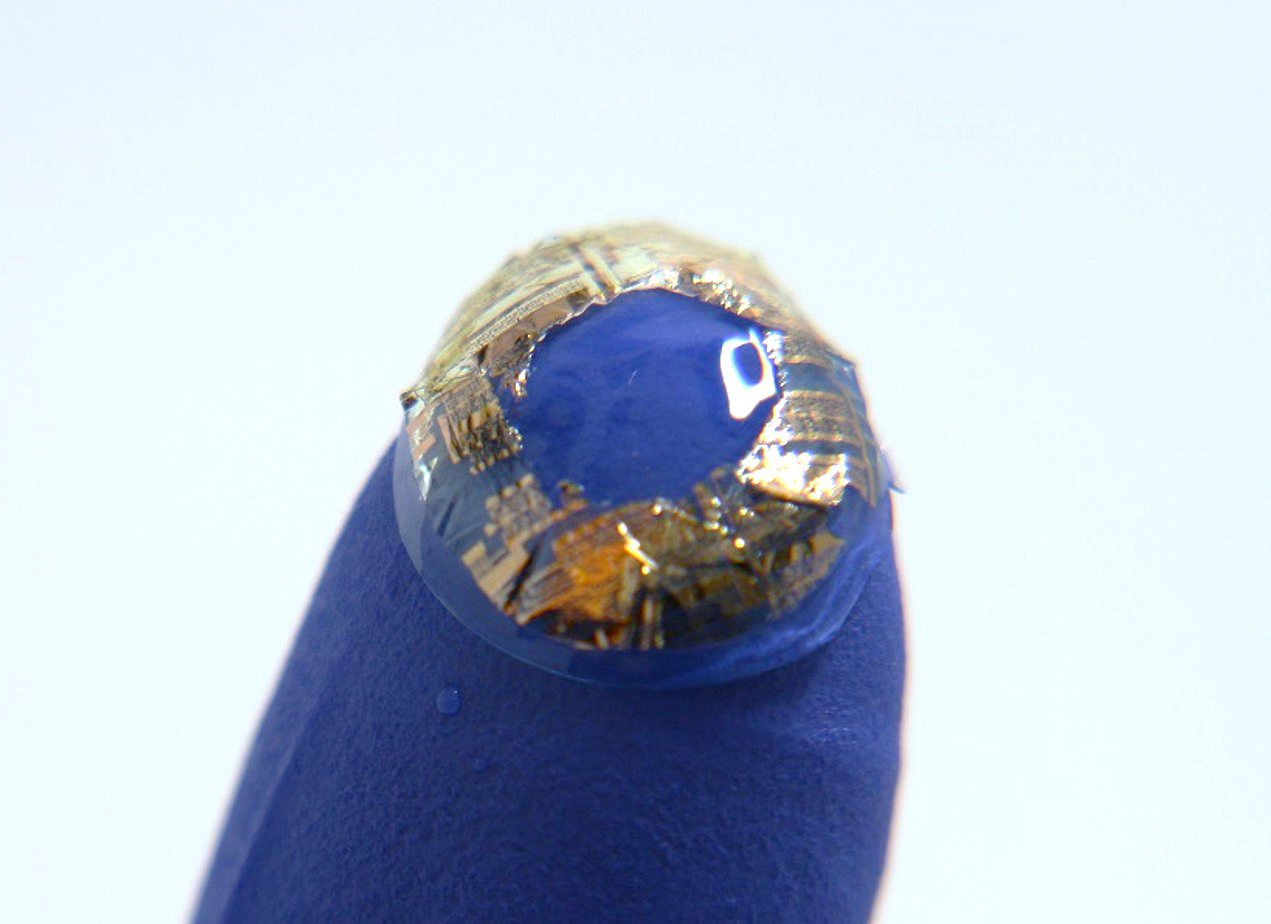
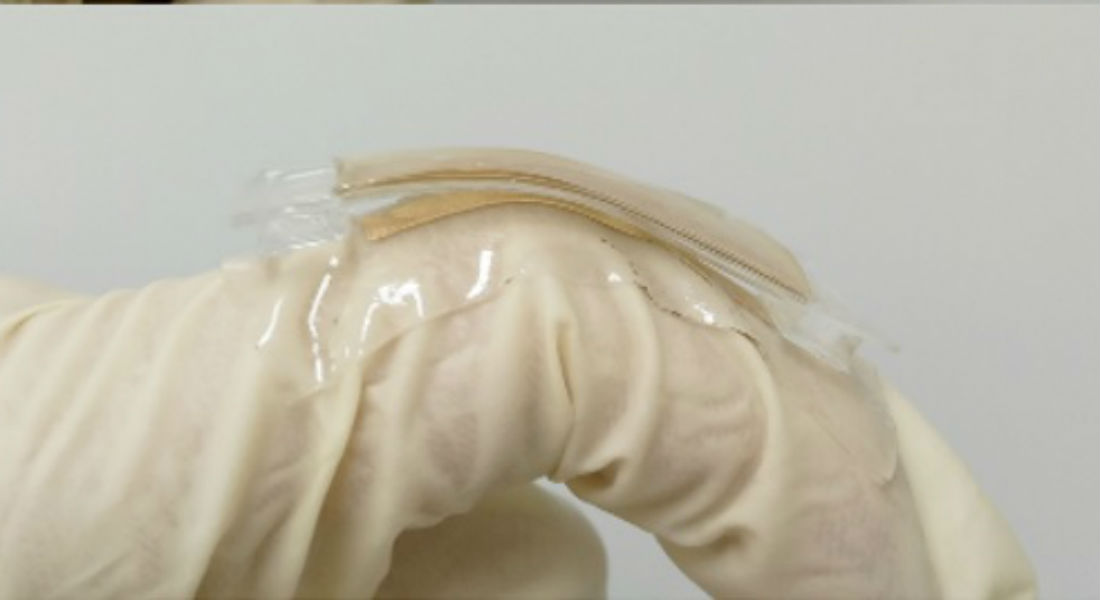
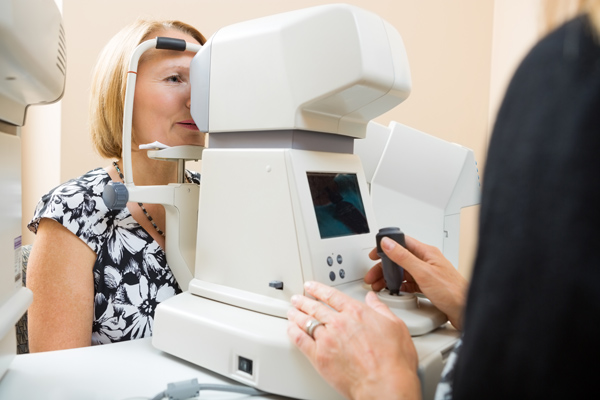





Join or login to leave a comment
JOIN LOGIN